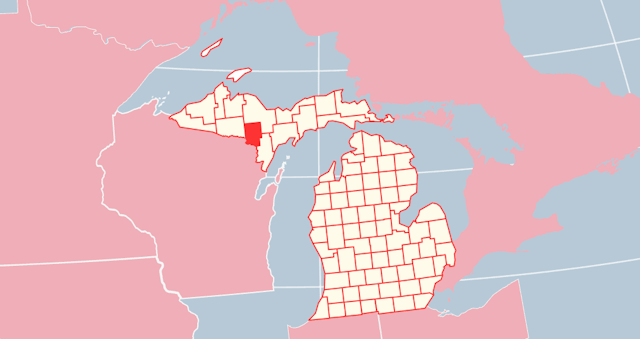Rehabs in Dickinson
Dickinson is a county in the state of Michigan. It is located on the peninsula and is one of the newest counties created in 1891. Its main seat is Iron Mountain. The overall area is 777 square miles wide and it is home to over 26,000 residents. The name is given in memory of General Dickinson. The recent data shows there are about 11,359 households and 7,320 families in the county.
Dickinson is in constant economic growth. The government encourages the development of different fields, granting special attention to education, healthcare, the economy, etc.
However, besides the constant advancement in different areas, some issues threaten overall welfare. One of the main concerns of the authorities is substance addiction.
Statistics of Substance Abuse
An increase in addiction cases became a common issue in the country. Almost all the states have faced an unprecedented rise in fatal overdose cases, to the point that it became a great threat to the public welfare. Based on statistics, drug overdose deaths have increased in Michigan from 19.9% per 100,000 to 27.8% per 100,000 during the pandemic. Nationally, fatal overdoses jumped from about 72,000 to 93,000.
This has made the local government worry about the well-being of the population. To stop the situation from going out of hand the authorities support and stand by the rehabs in Dickinson county.
Dickinson County Rehab Programs
Help availability is of utmost importance. Patients prefer to get support near their location, as the process of recovery is already stressful, and commuting will just add extra hustle. For this reason, there are rehab centers to meet their residents’ needs and offer various services.
The two main programs designed specifically for substance abuse cases are available in the county. They are Inpatient and Outpatient care. The programs are designed to meet any person's needs and expectations, from milder manifestations to more serious cases.
Detox and aftercare are also important parts of the recovery. Only full and comprehensive aid will generate good results.
Inpatient and Outpatient Rehab
Two main types of programs are used throughout the country for substance abuse treatment – Inpatient and Outpatient. The two treatment types are different in many aspects. Inpatient care is designed for people who suffer from serious cases of addiction. This is a residential type of support that assumes great care and 24-hour supervision from the side of the curing specialists. Generally, it starts from a month of support and can be extended to 60 or 90 days based on the patient’s overall state.
On the contrary, Outpatient care is more for lighter and newer addiction cases and does not suppose a residential stay. It often takes only a few hours a day and does not impact a person’s life as much as Inpatient care does.
However, only the general programs are not enough to generate a final result. In addition to the main options, Detox and Aftercare also play a defining part.
Detox
Detoxification is the initial stage when a person’s organism is cleansed from all the negative impacts caused by substance abuse. It generally lasts 1-2 weeks. The duration depends on the severity of the addiction and the substances used.
The procedure is carried out under strict supervision. A non-professional approach may lead to dire consequences, jeopardizing the person’s health.
Aftercare in Dickinson County
After completing the main treatment, it is recommended to seek aftercare. Some of the most common examples are recovery meetings, psychological counseling, various therapies, sober coaching, etc. Aftercare services aim to achieve lasting results.
Lack of aftercare might result in relapse, which is one of the worst scenarios for patients.
Addiction Treatment Costs
One of the common worries for patients is the treatment costs. Most people hope that insurance will cover rehab costs. However, this does not happen often, and even if it does it might be only partial coverage.
The costs for Inpatient care range from $15,000 to $20,000. This is an estimated amount for a month of support. On the other hand, Outpatient help costs start from about $4,000 per month.

